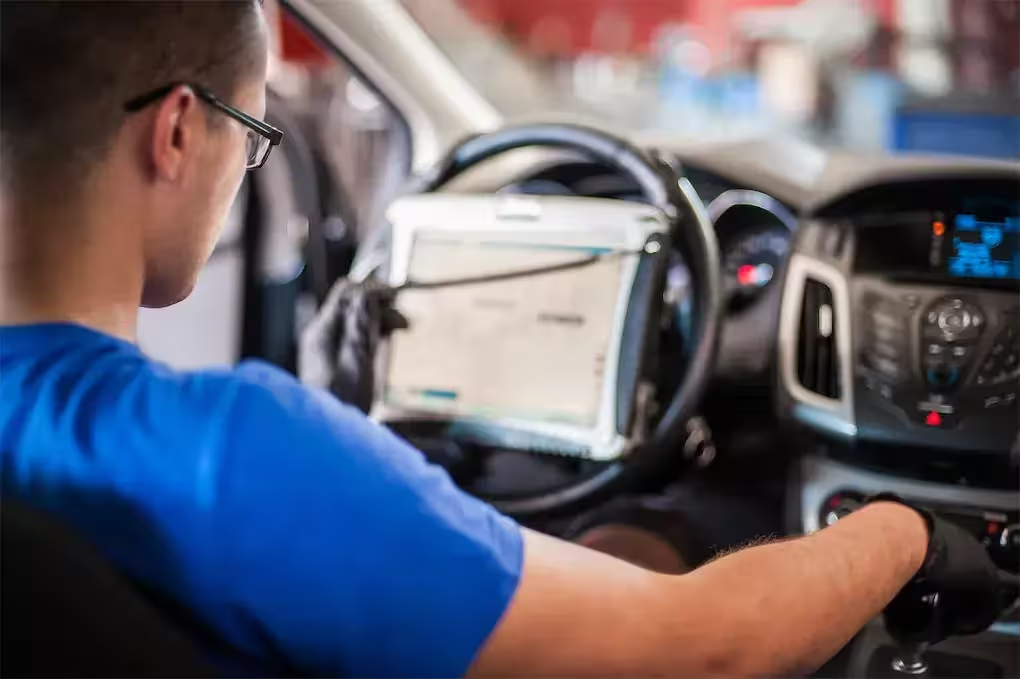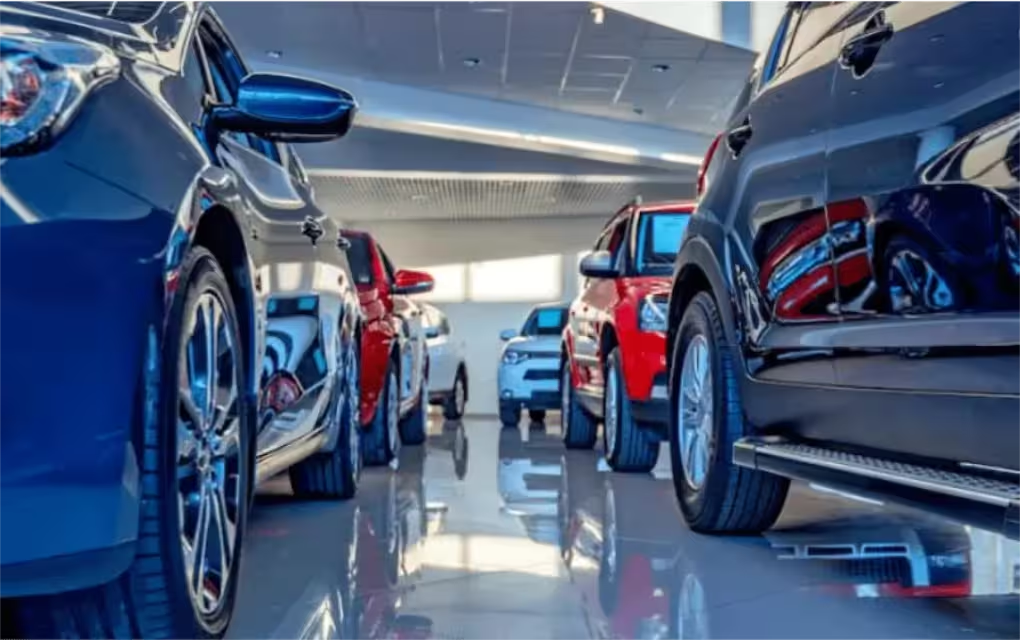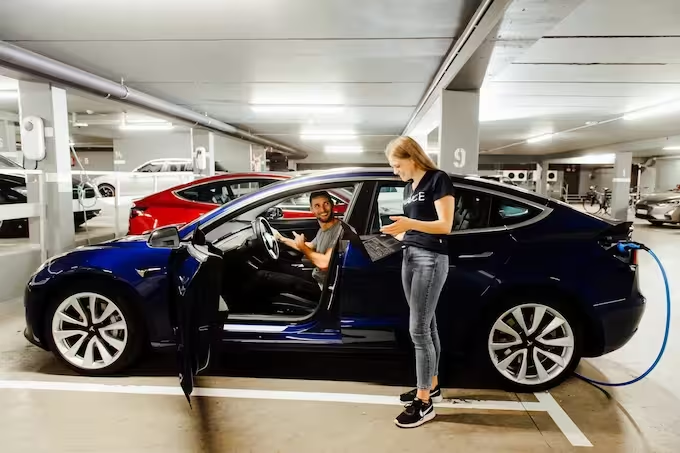Demand for assessments of electric vehicles is increasing. This, however, is currently almost impossible. TÜV Rheinland and the Munich-based start-up TWAICE are now working together to solve this problem.
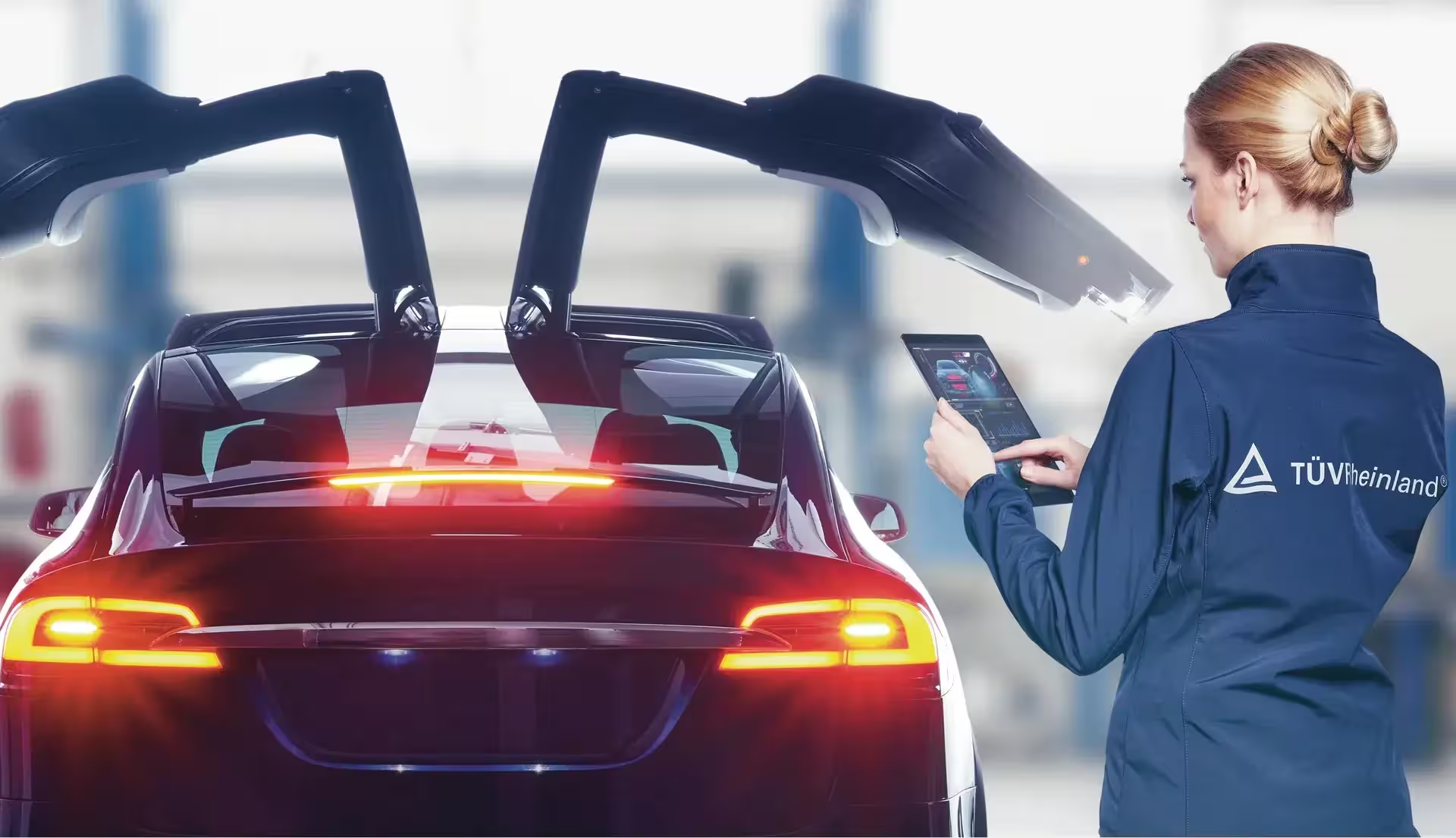
TÜV Cooperation
TÜV Rheinland and TWAICE cooperate to assess batteries
Demand for assessments of electric vehicles is increasing. This, however, is currently almost impossible. TÜV Rheinland and the Munich-based start-up TWAICE are now working together to solve this problem.
- The battery is the most valuable component in an electric vehicle, but is currently considered a black box
- The remaining lifetime and thus the economic residual value of electric vehicles cannot therefore be reliably estimated
- TÜV Rheinland and TWAICE are therefore testing a solution for determining and forecasting the state of electric and hybrid vehicles
Cologne/Munich – Whoever wants to resell their electric car has a problem: There is no reliable and independent evaluation tool for the most expensive and important part of their car – the battery. As a result, nobody knows to what extent the energy storage has already degraded. And certainly not, how long it will still last. The batteries of electric vehicles currently cost however several 10 000 Euro (approx. 30-50% of the vehicle costs). The increasing number of electric vehicles on the road leads to a high uncertainty in the used vehicle market, which TÜV Rheinland and TWAICE want to resolve, now.
If you maintained your car according to manufacturer recommendations, you had strong arguments for reselling it. The crucial mechanical components of the car were in a verifiable condition. However, such certainty has so far only been available for cars with combustion engines. For electric vehicles in which the battery is the most important component such an assessment is currently very difficult due to insufficient and lacking manufacturer-independent information.
Batteries are complex electrochemical systems; whose wear depends on a variety of factors. Quick charging is one such issue that can damage the battery. However, the number of quick charging processes alone is not yet sufficient. For example, the temperature must also be taken into consideration. Each battery is used in its own characteristics way and therefore wears out individually. General statements based on the number of kilometers are therefore not useful.
The cooperation between TÜV Rheinland and TWAICE will deploy an existing software to evaluate batteries reliably. The TWAICE software, which has already been tested in many applications, creates a digital twin of the battery and enables precise statements about the current condition and remaining lifetime. This creates the urgently needed certainty for sellers and buyers of used electric vehicles. The actual value of an electric car can currently only be estimated with great difficulty without information about the detailed state of health and usage history. “We are thrilled about this cooperation because we are certain that we will complement each other’s know-how. This will lead to a good partnership”, says Dr. Karl Obermair, Program Director Future Mobility at TÜV Rheinland.
The test area will be in Germany. Various vehicles will be equipped with the software from Munich this year. The patented TWAICE software continuously analyzes the use of electric vehicles with the help of analytical algorithms and artificial intelligence. The resulting digital twin provides predictions about lifetime of each battery. Based on the insights, warranty offers can be assessed and battery labels can be offered which independently warrants the quality of the battery. In addition, workshops, for example, will also be able to prepare vehicle assessments in the future.
The goal of the cooperation is to provide a standard for assessing the condition of valuable batteries and thus resolve one of the biggest concerns of used electric vehicles. “We are happy to have gained TÜV Rheinland as a globally recognized testing and certification company as a partner to evaluate batteries reliably and independently”, says Michael Baumann, Managing Director of TWAICE.
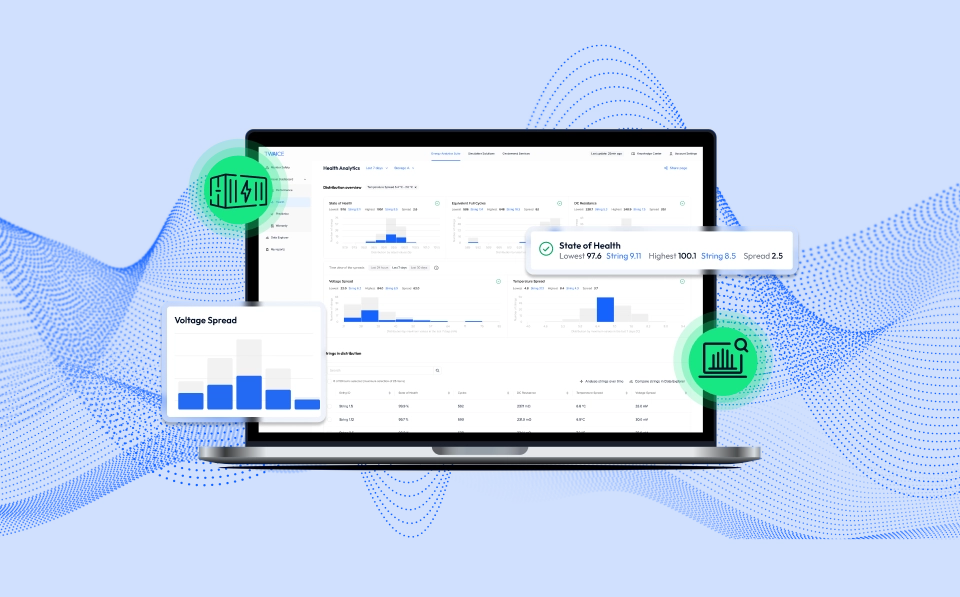
See TWAICE Energy Storage Analytics in Action
Sign up for the next live group demo and learn how TWAICE can transform your BESS operations. In just 30 minutes, you’ll get a demo of key features and use cases, and engage with our product experts for a live Q&A.
Related Resources
Second Foundation Pioneers Data-Driven Operation with Three-Year Deal for BESS Analytics
.avif)
TWAICE and Modo Energy Debut Integration to Quantify the Financial Impact of BESS Performance Improvements in ERCOT Markets
%20(1)%20(1)%20(1).avif)








%201%20(5).avif)






.avif)
